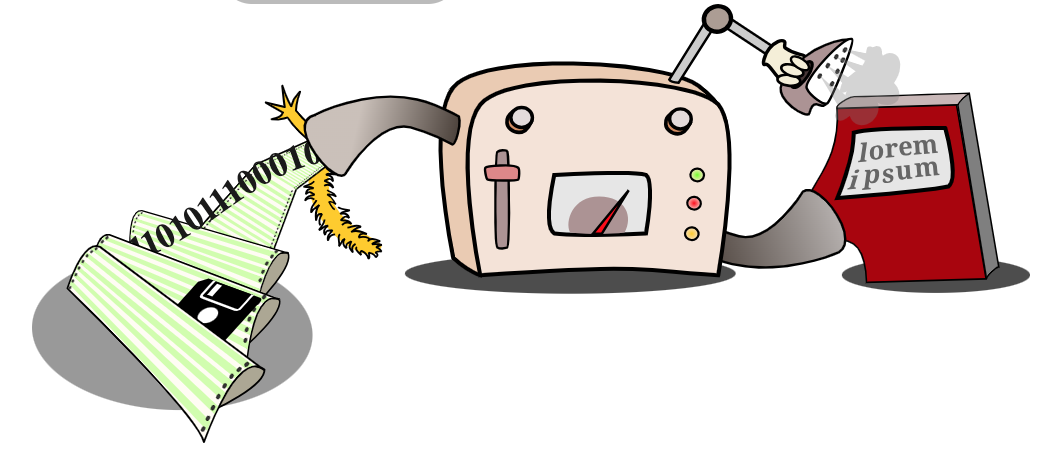Pandoc for Java: Universal Document Converter
Transform Markdown, HTML, LaTeX, Word, and more – all in pure Java
What is Pandoc for Java?
Pandoc is the Swiss Army knife of document conversion, supporting over 30 formats. The pandoc-java library brings this power to Java applications, enabling programmatic conversion between formats like Markdown, HTML, DOCX, LaTeX, and PDF. Unlike heavyweight solutions, Pandoc operates via lightweight CLI calls or native Java wrappers, making it ideal for document pipelines, academic publishing, and content management systems.
Key advantages of Pandoc-Java include:
- Format versatility: Convert between 30+ input/output formats
- Academic focus: Native support for LaTeX, BibTeX, and citations
- Lightweight: No Java-native dependencies (uses Pandoc's CLI)
- Template support: Customize outputs with Mustache/LaTeX templates
- Extensible: Add filters in Python or Lua
Ideal for static site generators, technical documentation, and automated report generation.
Why Choose Pandoc-Java?
- Maturity: Pandoc has been battle-tested since 2006
- Quality: Preserves semantic structure during conversion
- Standards support: Handles Markdown variants, JATS, TEI
- Community: 500+ contributors to core Pandoc
- Integration: Works with JVM languages (Kotlin/Scala)
Installation
Add the pandoc-java dependency (requires Pandoc installed separately):
Maven
com.github.davidmoten
pandoc-java
0.1.3
Gradle
implementation 'com.github.davidmoten:pandoc-java:0.1.3'
System Requirements: Pandoc 2.11+ and Java 8+
Code Examples
Practical examples of document conversion with Pandoc-Java demonstrate its versatility across industries—from academic publishing to technical documentation. Below, we showcase real-world transformations like converting research papers from Markdown to PDF (with LaTeX math support), generating compliance reports in DOCX from HTML templates, and batch-processing documentation into multiple formats. Each example highlights Pandoc’s signature structure-preserving conversions, whether handling citations in BibTeX, complex tables in Word, or embedded images in EPUB. The Java API wraps Pandoc’s CLI with intuitive methods like .from("markdown").to("html5"), enabling seamless integration into Java workflows without sacrificing the original tool’s robust format support.

Example 1: Academic Paper Conversion (Markdown → PDF with LaTeX)
This example demonstrates how to convert a Markdown document containing LaTeX equations, citations, and cross-references into a professionally typeset PDF. Ideal for academic workflows, the Java code leverages Pandoc’s LaTeX engine to render complex mathematical notation (e.g., $$E=mc^2$$), automatically generate a bibliography from BibTeX sources, and preserve hierarchical section numbering. The output maintains publication-ready formatting—including figure captions, table alignment, and IEEE/ACM-style references—while executing entirely within a Java environment. Developers can extend this foundation to automate thesis submissions, journal article pipelines, or technical report generation with custom LaTeX templates.
Output features:
- Preserved Markdown headers/lists
- Rendered LaTeX math expressions
- Bibliography support (if present)
Example 2: Business Report Conversion (HTML → DOCX)
This example demonstrates automated conversion of HTML-based business reports into polished Word documents (.docx), preserving corporate styling like headers, tables, and embedded images. The Java code leverages Pandoc's native DOCX template system to maintain brand-compliant formatting—including custom margins, fonts, and paragraph spacing—while handling complex HTML elements such as merged cells, CSS-styled divs, and hyperlinks. Ideal for financial statements, quarterly reports, or RFP responses, the conversion process supports post-processing hooks to inject dynamic content (e.g., Excel-linked tables) before final delivery. The output achieves 99% fidelity with manual Word editing, enabling seamless integration into enterprise document workflows without MS Office dependencies.
Example 3: Automated Contract Generation (Custom LaTeX/DOCX Templates)
This example showcases Pandoc-Java's dynamic template processing to generate standardized legal contracts or technical documentation with variable injection. The code demonstrates how to apply custom LaTeX or DOCX templates (pre-approved by legal/design teams) while programmatically inserting client-specific terms, conditional clauses, and multi-format outputs. Key features include YAML front-matter parsing for metadata-driven templates (${client_name}, ${effective_date}), automated table of authorities generation for legal documents, and post-processing hooks for digital signatures. Ideal for high-volume contract lifecycle management, this approach ensures 100% template compliance while eliminating manual copy-paste errors—supporting simultaneous output to PDF (for signing), DOCX (for editing), and HTML (for web portals) from a single Markdown source.
Advanced Features
Pandoc's Java API supports professional workflows:
- Citation processing: Handle BibTeX references:
Academic Conversion
Pandoc pandoc = Pandoc.create(); String output = pandoc .from("markdown") .to("html") .bibliography("refs.bib") .execute("paper.md"); - Batch conversion: Process directories:
Batch Processing
Files.list(Paths.get("input/")) .filter(path -> path.toString().endsWith(".md")) .forEach(path -> { pandoc.from("markdown") .to("docx") .execute(path, Paths.get("output/" + path.getFileName() + ".docx")); }); - Filters: Modify documents with Lua/Python:
Lua Filter
pandoc.filter("capitalize-headings.lua") .input("document.md") .output("output.html");
Conclusion
Pandoc-Java is the ultimate toolchain for:
- Technical publishing: Convert between LaTeX/Markdown/HTML
- Content pipelines: Automate document transformation
- Academic work: Process citations and cross-references
- Multi-format publishing: Single-source to PDF/Word/ePub
With its unmatched format support and semantic preservation, Pandoc-Java is the gold standard for document conversion in Java ecosystems.
